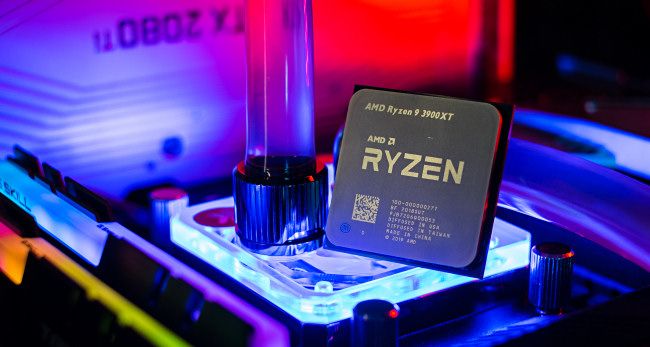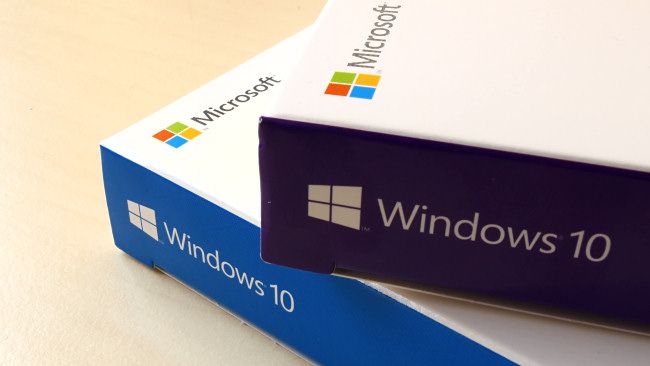Quick Links
OEMs can be a great way to save some money on PC parts by getting them from the source. Here's what this acronym means and why it's a must-know for computer enthusiasts.
Original Equipment Manufacturer
OEM stands for "original equipment manufacturer." This refers to the company that manufactured or created a product before being marketed through a retailer or used as a part of another product.
People use this acronym in many different contexts, but when used in internet commerce, it usually refers to a product sourced directly from the original manufacturer instead of a retailer. An OEM product is often identical to a retail product without bells and whistles like retail packaging, documentation, or a warranty. You can usually find OEM products at a lower price.
For example, builders of pre-built desktops will often buy processors in bulk from Intel. However, they might not be able to clear their entire stock before the next iteration rolls around. In that case, some of them will resell these "OEM" chips on the market. These chips will generally perform similarly to retail equivalents but are in plastic packaging instead of a box with a warranty.
The History of OEMs
Unlike other acronyms we've covered that are internet inventions, OEM is a technical term for manufacturing and business. Before it became common for computer hardware and software, OEM was primarily used in the automotive industry. Car companies sourced parts from various manufacturers, so when looking for replacement parts, mechanics and end-users would use OEM parts to make repairs.
As hobbyist computer building became more prominent in the 2000s, these parts became more common online. Whether it's system builders reselling OEM parts or people gutting their Dell desktop for parts, OEM components are a fixture of PC enthusiasts looking to save some cash.
Finding OEM Hardware
You can find OEM parts in a variety of places. You might spot them in online retail sites like Amazon or Newegg, on reseller markets such as eBay, or at your local computer shop.
You can find OEM equivalents of many computer parts, including processors, graphics cards, RAM, storage, or laptop power bricks. For closed systems like laptops and phones, replacement parts are also OEM-sourced. If you want to repair your computer screen or replace the battery, you'll generally want to find an OEM of the same part as your device. The alternative is aftermarket parts (or counterfeit parts), which can be of much lower quality.
There are instances where OEM products can be unique and not have a retail equivalent. For example, in previous generations, AMD manufactured OEM-only "G" processors with powerful integrated GPUs, primarily intended for productivity desktops in offices. Since AMD didn't allocate these chips for consumer retail, you would need to buy a desktop through a system builder or buy the chip on a plastic tray from a third party.
OEM Software
When you're browsing the web, you might also see "OEM" software, such as product activation keys for Windows or Microsoft Office. OEM keys are widespread. There's a good chance that the device you're using right now was pre-activated with an OEM key. Microsoft will often bundle large volumes of keys together for PC manufacturers and corporations, providing them with substantial discounts on the licenses.
These OEM keys sometimes find their way into the resale market, often through smaller system builders. These keys are usually priced lower but have the same validity as retail keys. However, since OEM software might be tied to a specific piece of hardware, resold keys might not work as expected. Make sure to check the reviews and feedback on an OEM key listening before purchasing.
So... Is it Safe?
Generally, OEM physical parts are fine and are an excellent way for bargain hunters to find the best prices. However, there are still a few things you should be wary of.
First, genuine OEM products typically have very few protections against defects. If you purchase an OEM chip from a third party, they will often specify that you're "buying at your own risk." There have been stories of people purchasing these resold chips and failing immediately. You want to look for resellers that have a strong reputation, online reviews, and a system for refunds or returns.
Next, OEM listings are very prone to fraud. Since they're trying to attract buyers based on price, scammers who produce counterfeit items often take advantage of the lack of details. If you see a deal that looks too good to be true, it just might be. Make sure to communicate with the seller before you complete any transactions on OEM products, and check if they have a history of selling similar products.
Lastly, you might also spot OEM on products that have nothing to do with computers or cars. Suppose you spot "OEM" on branded products like shoes, clothes, or small appliances. The seller implies that the item is from the same manufacturing source as genuine products. However, these products are widely considered counterfeits and breaking intellectual property since they use the branding without permission.



